

TOKYO, Sept. 1 -- At the military parade of the People 's Republic of China's founding ceremony on Oct. 1, 1949, 17 aircrafts flew over Beijing's Tian'anmen Square. Two of the pilots were students of Shigeo Tsutsui, a Japanese veteran in China's Eighth Route Army, a person who also made remarkable contributions to China's airpower.
On the first anniversary of Tsutsui's death, his son Kenji Tsutsui gave an exclusive interview to Xinhua and told reporters what made his father turn from a Japanese invader to a Chinese solider and how much that precious experience meant to his family.
Tsutsui was born to a farmer's family in Gunma Prefecture, central Japan on Oct. 11, 1920. He joined the Imperial Japanese Army and was sent to an aviation unit in Nanjing, then capital of China in 1940 and became a flying instructor.
"On January 1945, my father was captured by China's Eighty Route Army due to an emergency landing. At the base area of the Eighth Route Army, he learned and changed a lot."
Kenji told Xinhua that although his father volunteered for the Japanese army, he gradually realized that war initiated by Japan was a war of aggression, which brought tremendous pain to innocent Chinese people.
"My father, who had once been brainwashed by Japan's militarism, was awakened totally. He later joined the "Japanese People's Emancipation League," an anti-war group made up of converted Japanese prisoners of war and helped the Eighth Route Army to persuade other Japanese soldiers and teach them that the war was unjust."
"There is an old saying in Japan that 'a drowning man will catch a straw,'" Kenji said, relayed his father's words. "He repeatedly said that without the help of the League, he would have drowned. The Chinese people gave him a new life."
After Japan's defeat, Tsutsui insisted on staying in China and went to the northeast, where he helped to establish the Chinese People's Liberation Army's first true flying school. From its foundation to 1949, more than 120 male and 14 female pilots, who later became the backbone of China's air force were trained there by Tsutsui and other instructor personnel.
"The experience in China had a profound influence on my father, " said Kenji, "he was advised to join the Self Defense Force to fly aircraft after returning to Japan in 1958, however, he rejected this, even though it would improve our family's living greatly at that time."
Tsutsui was treated as a spy and supervised by Japanese police for a long time and he had no choice but to follow his wife to her hometown to become an ordinary farmer. "My father said he could not take up arms again," Kenji told Xinhua.
This year marks the 70th anniversary of the end of World War II and China's War of Resistance against Japan, at the invitation of the Chinese government, Kenji will attend the activities to commemorate the victory in Beijing on Sept. 3, as a representative of relatives of Japanese anti-war soldiers.
"My father had deep feelings for China," Kenji said. "He always said when he was alive that he wanted the younger generations to learn the truth of Japan's invasion history, and to let more and more people know that the Sino-Japan friendship was hard-won and needs to be cherished."
Kenji, who also devotes himself to Sino-Japan exchange, influenced by his father, said he will inherit his father's legacy.
"He is a hero with a magnificent and unusual life, I will do my best but can never surpass him."
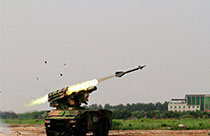 'Enemy planes' intercepted by Hongqi-7B air-defense missiles
'Enemy planes' intercepted by Hongqi-7B air-defense missiles Blind date with bikini girls in Nanjing
Blind date with bikini girls in Nanjing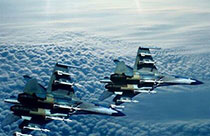 Amazing photos of Chinese fighter jets
Amazing photos of Chinese fighter jets Chinese soldiers participate in training for V-Day parade
Chinese soldiers participate in training for V-Day parade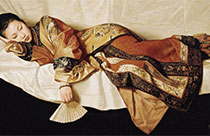 Painting: Lonely women in Forbidden City
Painting: Lonely women in Forbidden City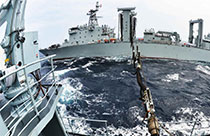 China and Russia hold joint drill in Sea of Japan
China and Russia hold joint drill in Sea of Japan 'Goddess' in Taiwan McDonald's
'Goddess' in Taiwan McDonald's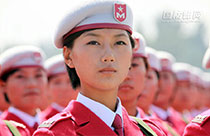 Female soldiers at military parades
Female soldiers at military parades Photos of campus belle doing splits go viral
Photos of campus belle doing splits go viral Best blade forward
Best blade forward Infographic: Parsing China's massive V-day parade
Infographic: Parsing China's massive V-day parade Giant panda cub receives medical care in Guangzhou
Giant panda cub receives medical care in Guangzhou China celebrates 70th Anniversary of Victory of World Anti-Fascist War
China celebrates 70th Anniversary of Victory of World Anti-Fascist WarDay|Week